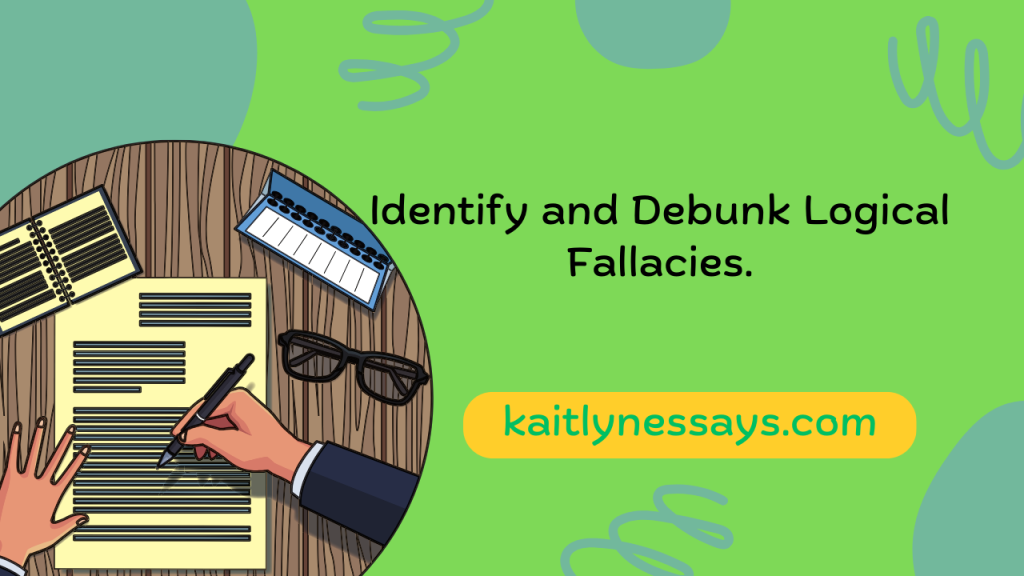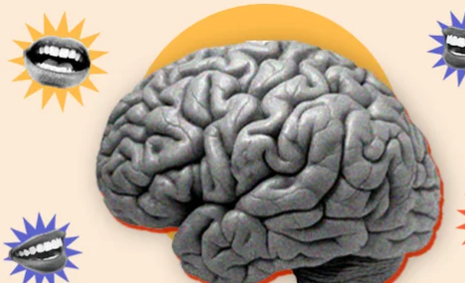
In argumentation and rhetoric, logical fallacies serve as stumbling blocks that obstruct clear thinking and undermine the credibility of arguments. While fallacious reasoning may appear persuasive on the surface, it ultimately fails to withstand rigorous scrutiny when subjected to logical analysis. In this guide, we will look into the identification and debunking of logical fallacies, shedding light on their detrimental effects on discourse and emphasizing the importance of sound reasoning in constructing persuasive arguments.
Before dissecting specific fallacies, it is essential to grasp the concept of a logical fallacy. A logical fallacy is an error in reasoning that renders an argument invalid or unsound. These fallacies often rely on faulty logic, misleading rhetoric, or manipulation of emotions to persuade audiences. While fallacious arguments may appear convincing, they are inherently flawed and fail to provide valid support for the claims they make.
Types of Logical Fallacies
Logical fallacies manifest in various forms, each with its own distinct characteristics and modes of deception. Some common types of fallacies include:
- Ad Hominem: This fallacy involves attacking the character or traits of an individual instead of addressing the substance of their argument. Rather than engaging with the merits of the argument itself, ad hominem attacks aim to discredit the person presenting the argument.
- Straw Man: In a straw man fallacy, one misrepresents or exaggerates an opponent’s argument to make it easier to attack. By constructing a weaker version of the opposing position, the arguer can then dismantle it with relative ease, ignoring the genuine complexities of the original argument.
- Appeal to Authority: An appeal to authority fallacy occurs when someone asserts that a claim is true simply because an authority figure or expert endorses it. While expertise can lend credibility to an argument, it is not sufficient evidence on its own, and appeals to authority must be supported by relevant evidence and sound reasoning.
- False Dilemma: Also known as the black-and-white fallacy, this error occurs when someone presents only two alternatives as though they are the only options, overlooking potential alternatives or nuances in the argument. By oversimplifying the choices, the arguer attempts to force the audience into accepting one of the presented options, neglecting the possibility of a middle ground or compromise.
- Appeal to Emotion: This fallacy relies on evoking strong emotions, such as fear, pity, or sympathy, to sway the audience’s opinion rather than presenting reasoned arguments. Appeals to emotion can be powerful tools of persuasion, but they are inherently manipulative and do not constitute valid evidence or logical reasoning.
Debunking Fallacious Arguments

While logical fallacies may initially seem persuasive, they crumble under closer examination and critical analysis. By identifying and debunking fallacious arguments, one can expose their weaknesses and reinforce the importance of sound reasoning in discourse.
Example 1: Ad Hominem
Consider the following statement: “We should not take Professor Smith’s arguments seriously because he has been known to make mistakes in the past.” This ad hominem attack attempts to discredit Professor Smith’s arguments by focusing on his perceived flaws or past errors rather than engaging with the substance of his current argument. However, the validity of Professor Smith’s arguments should be evaluated based on their own merits, rather than on irrelevant personal attacks.
Example 2: Straw Man
Imagine a debate about environmental policy, where one side argues for stricter regulations to combat climate change. The opposing side constructs a straw man by misrepresenting their argument, claiming that they want to abolish all industries and return to a pre-industrial lifestyle. By attacking this exaggerated version of their opponent’s position, the arguer sidesteps the genuine issues at hand and avoids engaging in meaningful discourse about potential policy solutions.
Example 3: Appeal to Authority
Suppose a celebrity endorses a particular brand of skincare products, claiming that they are the best on the market. While the celebrity may have expertise in their own field, their endorsement of skincare products does not necessarily constitute valid evidence of their effectiveness. Consumers should evaluate the product based on objective factors such as ingredients, scientific research, and customer reviews, rather than relying solely on the authority of the celebrity endorser.
Example 4: False Dilemma
In a political debate, a candidate asserts that voters must choose between two extreme positions: complete deregulation of the economy or heavy government intervention in all industries. This false dilemma overlooks the possibility of alternative approaches, such as targeted regulations or incentives to promote innovation and sustainability. By presenting only two extreme options, the candidate attempts to limit the scope of the debate and coerce voters into accepting their preferred solution.
Example 5: Appeal to Emotion
During a fundraising campaign for a charitable organization, a spokesperson shares heartbreaking stories of individuals who have benefited from their services, accompanied by emotional music and images. While these stories may elicit sympathy and encourage donations, they do not necessarily provide sufficient evidence of the organization’s effectiveness or justify its funding needs. Donors should evaluate the organization based on factors such as transparency, accountability, and measurable outcomes, rather than succumbing to emotional manipulation.
The Importance of Critical Thinking

In today’s information-saturated world, where misinformation and propaganda abound, critical thinking skills are more important than ever. By cultivating the ability to identify and evaluate logical fallacies, individuals can navigate complex issues with clarity and discernment, distinguishing between valid arguments and flawed rhetoric. Critical thinking empowers individuals to question assumptions, challenge authority, and engage in informed decision-making, ultimately contributing to a more rational and equitable society.
The Role of Education
Education plays a crucial role in fostering critical thinking skills and equipping individuals with the tools they need to navigate the complexities of the modern world. By teaching students to recognize and analyze logical fallacies, educators can empower them to think critically about the information they encounter and make reasoned judgments based on evidence and logic. Incorporating lessons on logical reasoning and argumentation into school curricula can help cultivate a generation of informed citizens who are capable of participating meaningfully in democratic discourse.
Media Literacy
In an age of digital media and social networking, media literacy has become an essential skill for navigating the vast sea of information available online. By teaching individuals to critically evaluate sources, discern bias, and identify deceptive tactics such as logical fallacies, media literacy programs can empower people to consume news and information responsibly. Media literacy education should be integrated into school curricula and promoted through public awareness campaigns, ensuring that individuals have the skills they need to navigate the digital landscape with confidence and discernment.
Fact-Checking and Verification
In the era of “fake news” and viral misinformation, fact-checking and verification have emerged as critical tools for combating deception and falsehoods. Fact-checking organizations play a vital role in scrutinizing claims made by politicians, media outlets, and public figures, providing readers with accurate information and debunking false or misleading narratives. By promoting fact-checking initiatives and encouraging individuals to verify information before sharing it, we can combat the spread of misinformation and promote a culture of truth and accountability in public discourse.
Conclusion
Logical fallacies represent a pervasive threat to reasoned discourse, undermining the credibility of arguments and impeding the search for truth. By understanding the nature of logical fallacies and developing the ability to identify and debunk them, individuals can become more discerning consumers of information and more effective advocates for rational discourse. Through education, media literacy, and critical thinking, we can confront the challenges posed by fallacious reasoning and foster a culture of intellectual honesty and integrity in our society.
If crafting your essay proves challenging, consider seeking assistance from our experts. We specialize in professional writing services for various academic essays and papers, ensuring high-quality results for our clients. Whether you need assistance with argumentative essays or any other academic writing task, our team is here to provide expert support tailored to your needs.
Frequently Asked Questions (FAQs)
- What are logical fallacies?
- Logical fallacies are errors in reasoning or flawed arguments that undermine the validity of an argument. They often involve misleading or deceptive tactics that make an argument appear valid when, in fact, it is not.
- Why are logical fallacies important to understand?
- Understanding logical fallacies is essential for critical thinking and effective communication. By recognizing fallacious reasoning, individuals can avoid being misled by deceptive arguments and can construct more persuasive and sound arguments themselves.
- How do logical fallacies affect everyday life?
- Logical fallacies are prevalent in various aspects of daily life, including politics, advertising, and social interactions. They can influence decision-making, shape public opinion, and impede rational discourse. Recognizing and debunking fallacies can help individuals make informed choices and engage in meaningful conversations.
- What are some common types of logical fallacies?
- Some common types of logical fallacies include ad hominem attacks, straw man arguments, appeals to authority, false dilemmas, and appeals to emotion. Each type of fallacy involves a different method of misleading or manipulating the audience.
- How can I identify logical fallacies in arguments?
- Identifying logical fallacies requires careful analysis of the structure and content of an argument. Look for flaws in reasoning, unsupported claims, reliance on emotion rather than evidence, and attempts to divert attention from the main issue. Familiarizing yourself with common fallacies can also help you recognize them more easily.
- What is the importance of debunking logical fallacies?
- Debunking logical fallacies is crucial for maintaining the integrity of discourse and promoting rational thinking. By exposing fallacious arguments, individuals can prevent misinformation from spreading, encourage critical thinking, and contribute to more reasoned debates and decision-making processes.
- How can I avoid using logical fallacies in my own arguments?
- To avoid using logical fallacies, strive to support your arguments with evidence, reason logically, and engage with opposing viewpoints respectfully. Be mindful of your own biases and emotions, and focus on addressing the substance of the argument rather than resorting to tactics aimed at discrediting your opponent.
- Where can I learn more about logical fallacies?
- There are many resources available for learning about logical fallacies, including books, online courses, and educational websites. Additionally, critical thinking and rhetoric courses often cover logical fallacies in depth. Engaging with these materials can help you develop a deeper understanding of fallacious reasoning and how to avoid it.
